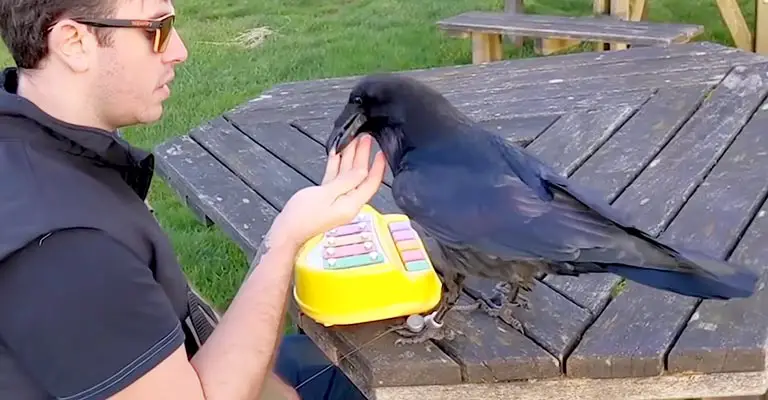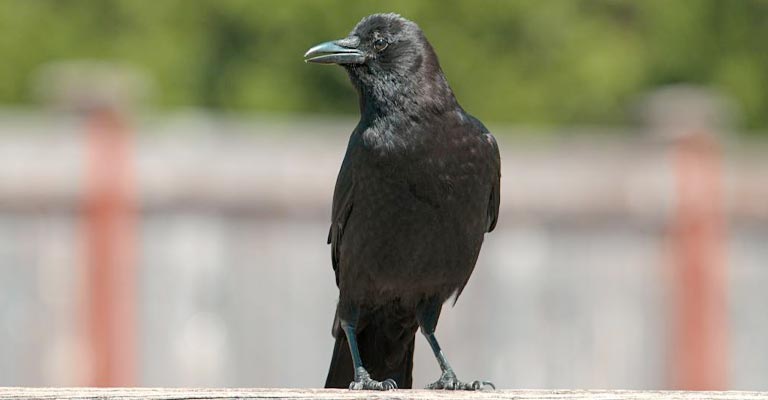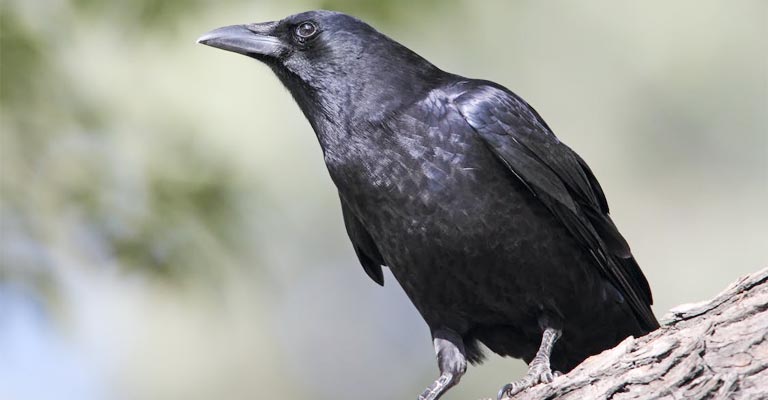You should already know, that a crow and a raven are not the same. If you are here to keep crows as pets, you should check out this.
For those who distinctively know what a raven is and still want to get one, this article is for you.
The Ravens have larger bills. They have different tail shapes and flight patterns. The birds are generally darker and larger than regular crows.
Although the process of having a raven and a crow are the same, there are still some differences you will need to follow. We will fill the gap for you.
Our article is exclusively about how to get a pet raven. We discuss the process of what procedures you will need to follow in order to get one raven in your home. First, let’s start with, are you even allowed to keep one?

Highlights of the Day:
Here are a few key notes on what you are dealing with. Ravens are brilliant birds and they need super care always.
- Regarding problem-solving abilities, ravens are often compared to chimpanzees and dolphins.
- They are exceptionally great at vocal mimics. Ravens can sometimes mimic human speech and a set of other sounds.
- Ravens are social birds. They live in groups and engage in community behaviors like group hunting and protecting their territory.
- Ravens are often considered symbols of transformation and creation. This is likely because the birds scavenge and clean up after other animals.
- The birds have a deep sense of empathy. Some ravens have reportedly consoled other ravens in distress.
- They have exceptional memory and can remember any face and events for years, even if it’s someone who imposed threats.
- It’s interesting how Ravens follow wolf packs. This doesn’t bear any spiritual meaning, rather they follow the wolf pack to scavenge the leftovers.
This is a two-way deal where wolves can pinpoint the location of the prey with the help of the birds.
Now you what you are dealing with! Do not confuse them with regular crows. Most ravens are more intelligent than most regular crows.
If you really have to keep one, be sure of commitment. You have to invest a lot of time and treatment.
How To Get A Pet Raven?

Before you get a raven, be aware of the legal considerations. According to the Migratory Bird Act of 1918, you are not allowed to own a wild bird. Get the details here. You have all the rules here. However, that doesn’t mean you can’t possess one.
Both the rules to keep a crow and a raven are the same. They both are wild birds and fall under the list of Migratory Bird Treaty Act list of wild birds. Here’s an overview of it.
Think Before You Leap:
Keep in mind that, Ravens are not like any other domestic birds. You can’t treat them the way you treat a parrot or budgerigars. They have a peculiar food diet and won’t rely on seed mix.
They can eat small mammals, other domestic birds, mice, eggs, and sometimes berries too. You may have a hard time dealing with the versatile protein-based diet.
Plus, it’s not a matter of a day or two, you also have to ensure a regular food supply. They consume food at different times of the day.
So, before you decide to have a raven, it shouldn’t come in whimsically. Ask yourself, do you have a genuine love for Ravens and the commitment to ensure them with a good life?
If not, the answer shouldn’t be Yes. After you decide, you will need to look for a healthy Raven. You can do the following.
Where Can I Get A Raven?
Native Ravens live in the Northern Hemisphere. They ideally select any habitat, except eastern forests and the open Great Plains.
However, pulling a raven from the wild might not be a good idea. They are ferals and won’t genuinely adjust to domestic life unless you come by one by accident (i.e. you have to report to the administration).
You have to contact a reputable and licensed source to get a pet raven. Several countries follow the Bird Treaty Act, which includes Canada, the United States of America, Russia, Japan, and Mexico.
According to this rule, only authorities with licenses have the right to keep these birds under proper care and treatment, in a nice place. Hence, you have to look for agencies or wildlife rehabilitators in your area, who may have captive-bred Ravens under their supervision.
It’s generally easy to find out. Search in Google and you will have plenty of options popping up!
How Much It Will Cost Me?

Now, if you want only one Raven and want to tame and train it, you have to buy one from one reliable breeder and wildlife rehabilitator.
The local breeders will offer you non-native U.S. species, such as white-necked ravens (Corvus Albicollis) and pied crows (Corvus Albus), and that is what they are allowed to sell. Any licensed authority is strictly prohibited from selling the Native species.
Now, comes the price! Ravens are comparatively higher in price than other non-native species. It may vary somewhere between $2000 to $6000, but never less than $2000.
So, get your pocket filled before you get your home filled with a Raven.
Training & Treatment
Ravens are generally brought in for educational purposes. Even if you buy one out of desire and interest, you will have to invest a significant amount of time to care for the birds.
Get some time every day to tame the Raven. They are intelligent birds and would gradually understand the commands with proper training and leadership.
Try to influence them positively. Offer them a treat in exchange for following a command. Also, add some joyful materials such as puzzles and balls to keep their minds active and healthy.
Now, you know a lot about the Ravens and where to get one. We are almost at the end of our article. Let’s wrap up things.
Final Conclusion
Often keeping a Raven may seem like a challenging task. But if you ensure proper care and administration, you can do it!
You only have to be patient with them and learn more about them. We would suggest to research about the mystical birds as much as you can.
It will help you learn more about them and how they will behave in a new place and react to your responses. Also, you will know what they need and when if you conduct board research.
In the end, let us know in the comment section, where are you getting at. We would be glad to help you out! Also, share our article with your friends and others.